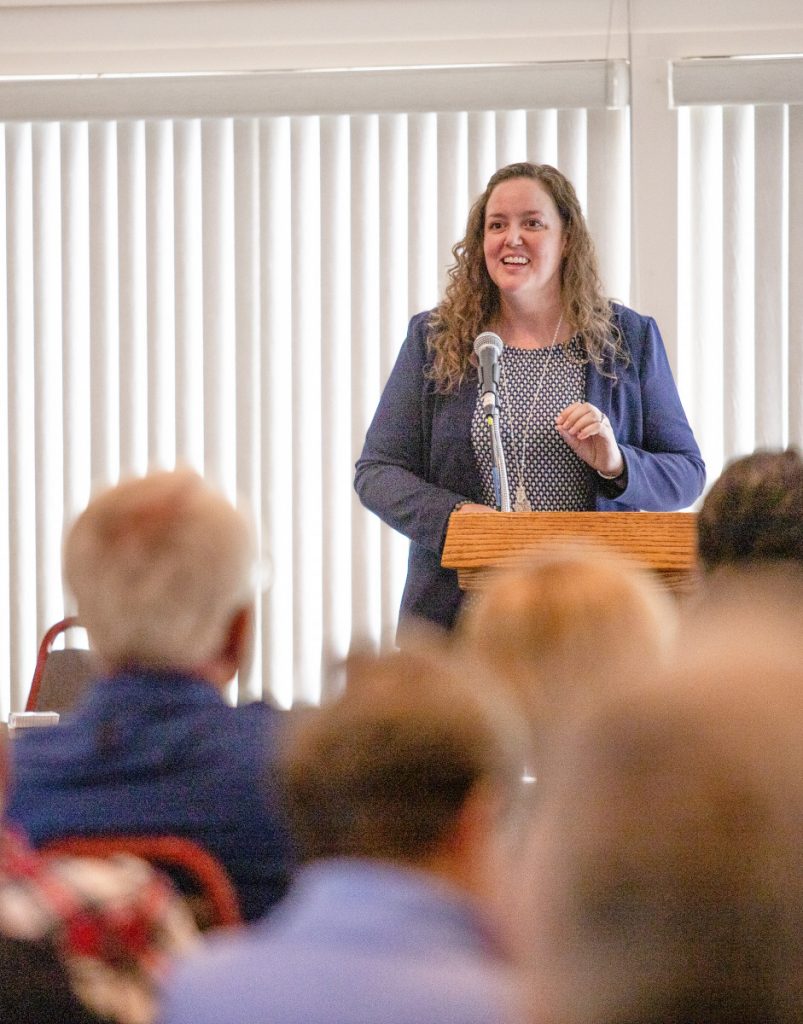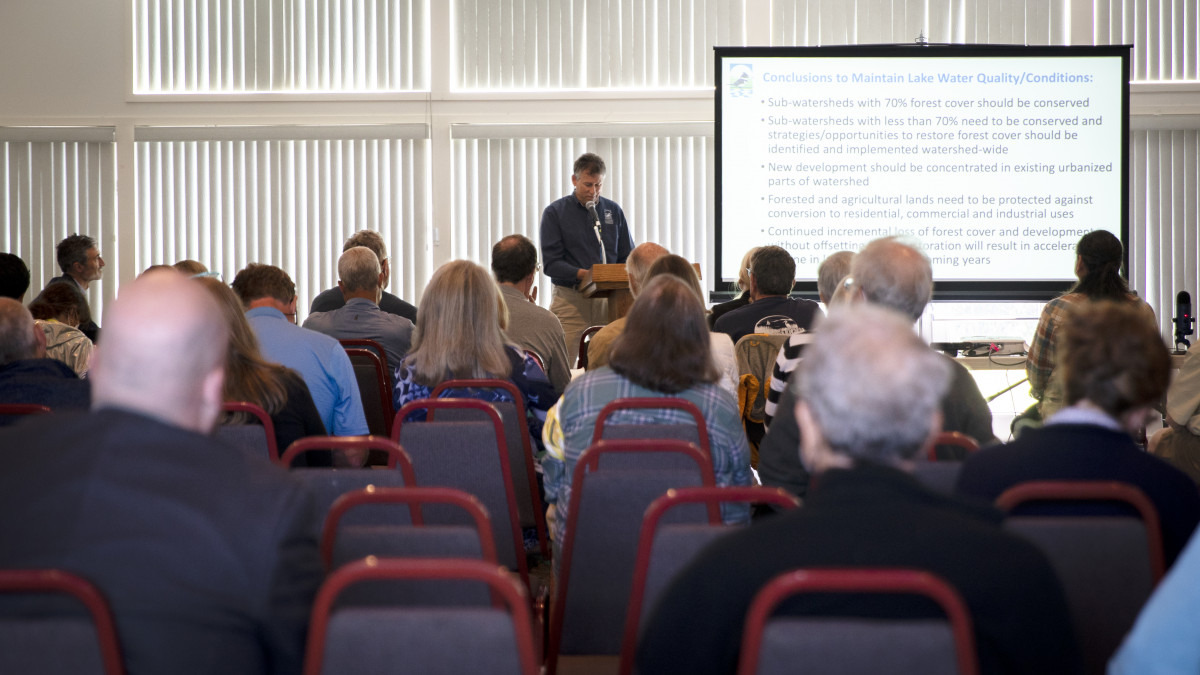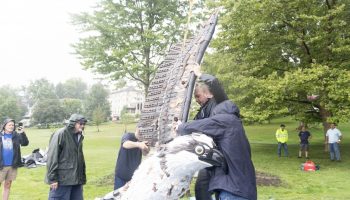Community members gathered at the Chautauqua Lake Water Quality Conference on June 18 at the Chautauqua Golf Club to learn about the issues threatening Chautauqua Lake, as well as various stakeholders’ plans to mitigate these problems.
Last Saturday’s conference served as a public forum for concerned Chautauquans to learn more about their environment and what they can do to lessen lake stressors. As lecturers spoke, attendees were able to submit questions, which were answered at the end of each presentation.
The event featured six presentations from several experts in lake ecology, covering topics such as algae blooms, the chemical makeup of lakes and geography that affects lake health.
Speakers from SUNY Oneonta and Fredonia, the Chautauqua Watershed Conservancy, Syracuse University and Rensselaer Polytechnic Institute shared their expertise in lake ecology through a series of presentations.
At the conference, Chautauqua Institution President Michael E. Hill reflected on the 150 Forward strategic plan passed in 2019 by the board of trustees. The plan details the goals the Institution has for the next 10 years. As the Institution nears its 150th anniversary, Hill stressed the importance of communal responsibility in responding to the third pillar of the strategic plan: “Drive the implementation of a comprehensive, science-based approach to improving the health and sustainability of Chautauqua Lake and elevate its conservation as the centerpiece of the region’s economic prosperity.”
“These types of conferences help scientists join everyday citizens in creating a fountain of literacy about what the issues are and how we might think about solving them together,” Hill said. “I think the outcome of this conference is helping people understand what causes those things, and what role we play as humans — as humans that enjoy this lake for any number of purposes.”
Courtney Wigdahl-Perry, a biology professor at SUNY Fredonia, who was among the speakers, discussed the detrimental effects of harmful algal blooms (HABs).
HABs are large masses of microscopic algae containing cyanobacteria — which produces toxins poisonous to aquatic life and pets. In rare instances, HABs can cause acute flu-like symptoms, fever and skin irritation in humans. While HABs are active during the summer season, the lake is safe for recreational activities.
“Harmful algal blooms are one of those things that’s going to affect so many aspects of human activity around the system,” Wigdahl-Perry said. “That is really concerning. We’re learning a lot more, but they’re complicated.”
While HAB clusters vary from year to year, Wigdahl-Perry noted an improvement in overall understanding of the lake among her fellow researchers since the Institution hosted the first lake conference in 2019.
“To think of all the stuff we’ve learned just in the last few years since the last conference — we’ve come a very long way,” Wigdahl-Perry said. “We’ve taken different sets of expertise, different tools, different sorts of skills, and really brought new patterns out, which I think is really going to be helpful for us as we’re trying to understand what’s going on with the algae.”

Other strides have been made since the first Lake Water Quality Conference, including the CWC’s acquisition of a grant totalling over $50,000 from the New York State Conservation Partnership Program in April 2022.
Twan Leenders, CWC ecological restoration manager, hopes to use this grant to create a stakeholders group designed to develop a Geographic Information System tool. The tool will be used to combine national datasets, pinpoint specific locations that need help in the lake’s basins, and narrow research questions. Most important, Leenders said, are the opportunities GIS holds for the community as a whole.
“I firmly believe that everybody would like to help,” Leenders said. “I think that a lot of people just don’t even know where to begin. I think the most important part of this tool is to … make sure that it becomes implementable, usable and accessible.”
Leenders predicts the GIS tool, and its related committee, will take two years to fully develop. Other projects, such as Wigdahl-Perry’s Drone Imaging System and The Jefferson Project at Lake George’s ongoing work, will begin or continue this summer season to immediately further research the depths of the lake.
The conference was the first of many conversations in the summer of 2022 regarding lake health, with work spearheaded by both Climate Change Initiative Director Mark Wenzler and new Lake Project Manager Tobias Shepherd. The Climate Change Initiative, funded by philanthropic gifts from Julie Veitch, Peter Nosler and Jane Batten, aims to address climate change through education and service.
While many aspects of 2022 season programming were made with the Climate Change Initiative in mind, the work focused on environmentally-conscious decisions and education is year-round.
“We care deeply about what is happening in the lake; that is a big part of our home here at Chautauqua,” Hill said. “I’m excited that we’re more and more discovering the ingredients that will help us create solutions to safeguard this incredible national treasure that is here right in our backyard.”





